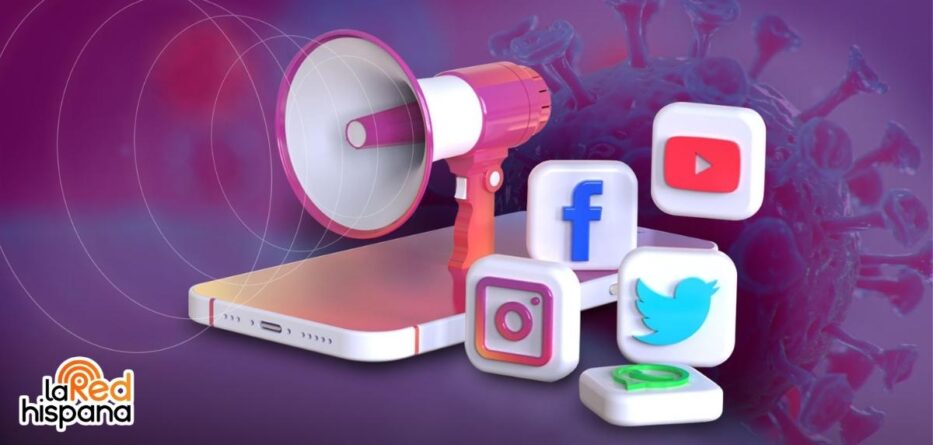In order to defeat the COVID-19 pandemic, which threatens to last indefinitely as a result of the emergence of new variants such as Omicron, scientists and public policy planners have reached an unavoidable conclusion: It is not only necessary to neutralize the virus, but to confront the fearsome “infodemic” that has invaded social networks and sowed doubts about vaccines.
The Pan American Health Organization (PAHO) defines the “infodemic” – a word that is the result of the marriage between “epidemic and information” – as a mixture of scientific and technical information, along with rumors, manipulated data, false experts, incorrect information, as well as false and biased news that make it difficult for the public to process and discern.
It is a universal phenomenon and amplified by the megaphone of digital platforms and uncontrollable social networks, but it disproportionately affects those who cannot easily check the authenticity, veracity and reliability of information: Spanish-speaking communities have been prey to the “Infodemic”, which could explain, in part, the high levels of indecision about the importance of getting vaccinated against COVID-19.
The public may have legitimate questions about vaccines, for example, about their safety and effectiveness for certain communities, or their immediate or long-term effects. These are questions that are beginning to be answered by the hundreds of millions of people who have already been vaccinated and by an analysis of the effects on specific segments of the population.
But the “infodemic” has little to do with legitimate questions and a lot to do with unsubstantiated conspiracy theories, such as that vaccines cause infertility or alter DNA or even wild theories, such as that vaccines turn you into a magnetic instrument, which has been continually proven false.
The main factors identified by PAHO experts and that contribute to the development of the infodemic are: lack of digital literacy programs, which makes it difficult to search, select, recommend and disseminate reliable data and information; the lack of tools to obtain information in the right digestible format, language and time; and the lack of knowledge in the use of digital applications in health.
All of which leads us to the question. What is the best antidote to the infodemic? The first thing is to verify if the source of the information has the authority to speak about the subject, followed by exercising common sense to assess whether the information makes sense, confirm the source of the information, and avoid becoming part of the problem by spreading false or dubious information.
But it is also necessary to go a little further. Government medical agencies, civil society organizations and the private sector itself must make an effort to adapt their information materials to the level of medical literacy of the users, present them in a didactic and simple way, and distribute the truthful information on social networks, where rampant disinformation circulates.
It is naive to think that this infodemic will disappear overnight, but if we do not take decisive steps to identify and confront it, it will be much more difficult to neutralize the true tragedy of the pandemic, which is taking unnecessary lives due to irresponsible misinformation.






